Our organisation is governed by a Council of nine members. Four are elected by AIATSIS members and five are appointed by our Minister and must be Aboriginal persons or Torres Strait Islanders.
The Council is responsible for setting our policies and ensuring we perform properly and efficiently across all of our functions.
-
Karl Hampton - Chairperson

Karl Hampton is a Warlpiri/Ngulakan/Mara man born in Alice Springs with a large extended family network stretching across the Northern Territory. A respected leader, researcher, and community historian, Karl has dedicated his career to advancing the rights of Aboriginal and Torres Strait Islander peoples. He currently works as a Warlpiri Business Consultant.
Karl is a Senior Atlantic Global Fellow with the University of Melbourne; he completed his master’s in social Change Leadership in 2023 with his project being on Warlpiri traditional governance. Karl also has experience on a number of Boards over many years and is a member of the Museum, Galleries of the Northern Territory Aboriginal Advisory Group, and a member of the Northern Territory Government Repatriation Committee.
Karl’s has worked in many jobs in Central Australia over the past 37 years and has a background in politics that extended across 11 years both as a political adviser and a Member of Parliament.
Karl and his son Jamie Hampton co-founded the Warlpiri project 5 years ago and recently took a Warlpiri delegation to Germany.
-
Professor Brenda L. Croft - Deputy Chairperson
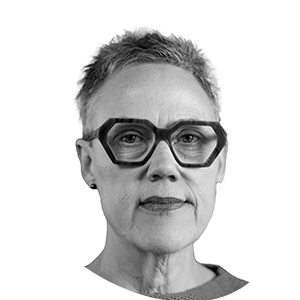
Brenda L Croft is a First Nations woman from the Gurindji/Malngin/Mudburra Peoples from the Victoria River region of the Northern Territory of Australia, with Anglo-Australian/Chinese/German/Irish/Scottish heritage. Brenda is Nangari skin, with totems being Ngarlu (‘sugarbag’ or native honey) and Tikirrija (red-backed kingfisher).
For four decades she has undertaken a leading role in national and international First Nations and broader contemporary arts/cultural sectors as a multi-disciplinary creative practitioner (academic, administrator, artist, curator, educator, researcher, scholar).
Brenda’s creative-led research encompasses Critical Indigenous Performative Collaborative Autoethnography and Storywork methodologies and theoretical frameworks. For over three decades she has worked closely with her patrilineal family and community, and also with local and regional First communities in the ACT/NSW.
As an academic, artist, curator and project manager Brenda’s work with Australian and international First Nations/Indigenous communities spans more than four decades. These connections commenced during her involvement with her father, Joseph Croft’s cultural work in the federal Department of Aboriginal Affairs in the 1970s – 80s.
In 2024 Brenda was the Gough Whitlam & Malcolm Fraser Visiting Chair of Australian Studies, Harvard University, living and working on the Ancestral Homelands of the Massachusett.
Brenda is Professor of Indigenous Art History & Curatorship at the Australian National University with her ANU affiliation dating from 1982. She is privileged to live and work on unceded sovereign Ngambri/Ngunawal homelands.
-
Jayde Geia
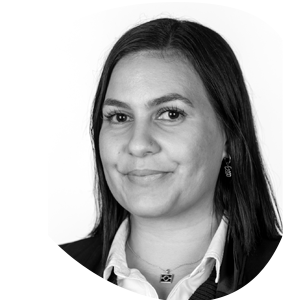
Jayde Geia is an Aboriginal and Torres Strait Islander woman and her family are Gunggandji, Bwgcolman and Mualgal.
Jayde is a commercial lawyer and currently works at the Aurora Education Foundation and has held previous roles as manager at Ernst & Young, In-house legal counsel at the Queensland Investment Corporation, solicitor at Allens Linklaters and Judge’s Associate.
-
Mark Yettica-Paulson
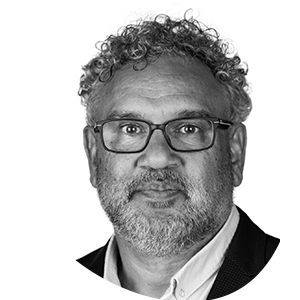
Mark Yettica-Paulson is an Intercultural Leadership specialist from the Birrah, Gamilaroi and Bundjalung peoples with connections to Tanna Island (Vanuatu) and Scotland.
Mark is currently the Deep Collaboration Practice Lead for Collaboration for Impact and is a leadership and cultural facilitator for a number of national leadership development programs. Mark brings decades of wisdom from his career in leadership development, diversity and inclusion, and community education across the corporate, NGO, community, government and faith sectors.
-
Rodney Dillon
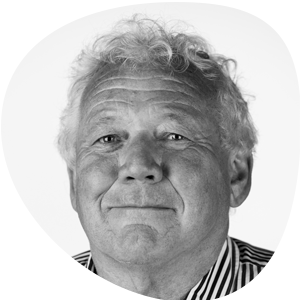
Rodney Dillon is a distinguished Tasmanian Aboriginal leader, Cultural Knowledge Holder, and Elder, hailing from the North East Nation of Trawlwoolway in Trouwerner/Lutruwita (Tasmania). Born into a family of resilience, Rodney's commitment to his People, Country, and Culture was instilled by his grandmother, a survivor of captivity on Flinders Island's Wybalenna. Raised in Nicholls Rivulet, Tasmania, he has devoted his life to dispelling myths of Aboriginal extinction and advocating for the rights of Aboriginal and Torres Strait Islander Peoples.
His advocacy spans decades, focusing on crucial issues such as land and sea rights, social justice, and the repatriation of ancestral remains. His efforts have significantly advanced Aboriginal sea rights, allowing Palawa/Pakana communities to sustainably harvest marine resources and promoting equitable water access and stewardship in Tasmania. Furthermore, he has worked with Amnesty International for the past 17 years, advocating for homelands and the rights of the child, successfully influencing the Tasmanian government to raise the age of criminal responsibility to 14 years.
Rodney has played a pivotal role in establishing several community-controlled organizations that enhance the wellbeing and empowerment of Aboriginal Peoples through essential services in health and aged care and social enterprise. As the inaugural Chair of the Reconciliation Council of Tasmania, he was influential in shaping truth-telling agendas and reconciliation policies. Currently, he sits on the Tasmanian Truth-Telling and Treaty Advisory Committee, where he advocates for Aboriginal sovereignty, and the recognition of cultural identity and rights. In addition to these roles, he has served as Chairperson of the Aboriginal Heritage Council and as a Director on the Australian Heritage Council for two terms.
-
Professor Lynette Riley
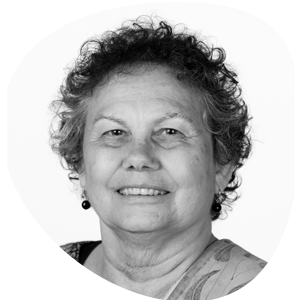
Professor Lynette Riley, AO, a Wiradjuri & Gamilaroi woman from Dubbo and Moree, working in the Sydney School of Education & Social Work, The University of Sydney; and Chair, for Aboriginal Education and Indigenous Studies.
Lynette trained as an infants/primary teacher. She has been a classroom teacher; an Aboriginal Education consultant; worked in TAFE; State Manager for Aboriginal Education; and an academic. Her career focus is improving educational delivery for Aboriginal students and ensuring non-Indigenous students gain accurate information about Aboriginal people’s their histories and cultures. Lynette’s PhD was conferred in 2017, looking at ‘Conditions of Academic Success for Aboriginal Students in Schools’.
Lynette has been involved in numerous research projects and in writing numerous chapters and journal articles, her most recent is a series of 7 ‘Wiradjuri Workbooks’ written with her sister Diane Riley-McNaboe.
-
Emeritus Professor Dr Leonard Collard
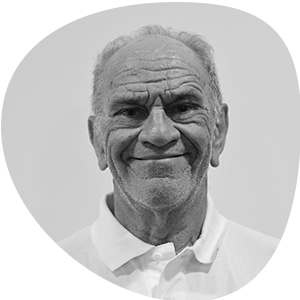
Emeritus Professor Dr Len Collard is a Whadjuk Nyungar elder and respected Traditional Owner of the Perth Metropolitan area and surrounding lands, rivers, swamps, ocean and culture. Dr Collard has a background in literature and communications, with research interests in Aboriginal Studies, including Nyungar interpretive histories and Nyungar theoretical and applied practical research models. Dr Collard has conducted research funded by the Australian Research Council, the National Trust of Western Australia, and many other research institutions and organisations. Len's research has allowed the broadening of the understanding of the many unique characteristics of Australia's Aboriginal people and has contributed enormously to elevating the appreciation of culture and heritage of the Southwest region of Australia. Len’s groundbreaking theoretical work has put Nyungar cultural research on the local, national and international stages.
In 2023 Professor Collard was admitted to the UWA Emeriti Professors College and awarded an honorary PhD in Education from Edith Cowan University.
Professor Collard was awarded the honorary PhD in recognition of his dedication to teaching and research, to driving positive change within education and society, to helping and supporting people on their journey to awareness and contributing to the appreciation of Aboriginal history and culture. He was acknowledged for epitomising ECU’s values of integrity, respect, rational inquiry, personal excellence, and courage, and being an inspiring role model for future generations. The opportunity to teach, mentor and graduate so many students in the field of Aboriginal studies has been a significant achievement for Len, along with being recognised by his peers in his promotion to Emeritus Professor at UWA. Thus creating history by being the first Aboriginal Australian to be inducted into the a prestigious college of emerita at the university of Western Australia.
-
Ashley Walker
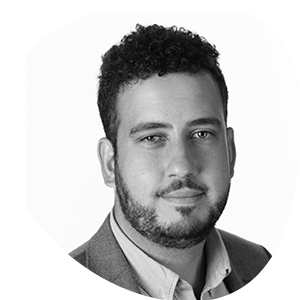
Ash Walker is a Dharawal/Dhurga man belonging to the La Perouse Aboriginal community in coastal Sydney. Ash runs his own consultancy practice, Wagal Advisory, and has previously worked as a management consultant at Boston Consulting Group, a corporate lawyer at Gilbert + Tobin and Acting CEO of the La Perouse Local Aboriginal Land Council.
-
Dr Michelle Deshong
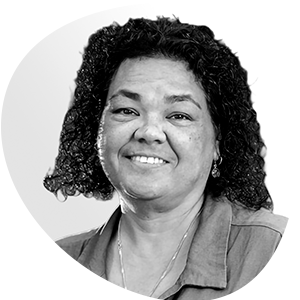
Dr Michelle Deshong draws her connections to Kuku Yalanji and Butchulla nation and currently lives in Townsville, North Queensland. She has committed most of her professional life to the importance of Aboriginal and Torres Strait Islander peoples asserting their right to self-determination through culture reclamation, leadership, governance and political engagement.
Michelle is recognised globally for her efforts in political advocacy, having worked across Indigenous affairs for over 30 years. She is among a generation of Indigenous Leaders pushing the boundaries of change, to overcome the challenges that have long beset Indigenous communities and organisations. A large body of her work has been in executive roles within the Federal government, NGO, and community sectors.
Michelle has also held several governance roles including Chairperson of Supply Nation, previous Deputy Chairperson of AIATSIS, Chair of the Queensland Treaty Institute and a member of the DFAT Indigenous Advisory committee.
Michelle has been a business owner for over 20 years and is passionate about supporting the growth of the Indigenous Business sector nationally and internationally. The business enables her to present and engage extensively on areas of expertise and support Indigenous peoples and communities across the country.
Michelle is also an accomplished academic, completing her PhD on the participation of Indigenous women in public and political life. She was awarded a Fulbright Scholarship in 2015/2016 to work with Native communities across US, Canada and New Zealand to explore models of cultural governance and nation building. She was also awarded a Churchill Fellowship to continue her research internationally.
AIATSIS Council Chairpersons
- Karl Hampton, 2025 - Present
- Professor Clint Bracknell, 2024 – 2025
- Jodie Sizer, 2019 - 2024
- Professor Michael McDaniel, 2017 - 2019
- Professor Michael (Mick) Dodson AM, 1999 - 2017
- Professor Marcia Langton AM, 1992 - 1998
- Ken Colbung AM MBE, 1984 - 1990
- Professor JD Mulvaney, 1982 - 1984
- Dr Les Hiatt, 1974 - 1982
- Emeritus Professor NWG MacIntosh, 1966 - 1974
- Emeritus Professor AD Trendall, 1961 - 1966